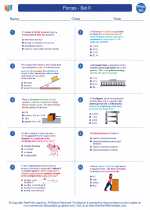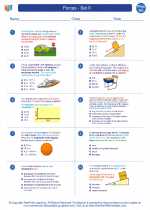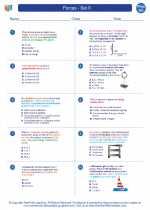The Proton
The proton is a subatomic particle with a positive electric charge. It is a fundamental constituent of all atomic nuclei and is denoted by the symbol "p" or "p+".
Properties of Protons
- Charge: The charge of a proton is approximately +1.602 x 10-19 coulombs.
- Mass: The mass of a proton is approximately 1.6726 x 10-27 kilograms.
- Location: Protons are located within the atomic nucleus and contribute to the mass of the atom.
- Stability: Protons are considered stable particles and do not decay under normal circumstances.
Role of Protons in Atoms
Protons play a crucial role in determining the identity of an element. The number of protons in an atom's nucleus is known as the atomic number, which determines the element's place in the periodic table.
Interactions with Electrons
Protons interact with electrons through electromagnetic forces, leading to the formation of chemical bonds and the creation of neutral atoms.
Applications and Research
Protons are extensively used in scientific research, particularly in the field of particle physics, where they are accelerated to high speeds in particle accelerators to study their interactions with other particles.
Study Tips
- Understand the concept of the atomic nucleus and the role of protons in it.
- Practice calculating atomic number and mass number based on the number of protons and neutrons in an atom.
- Review the electromagnetic interactions between protons and electrons in the formation of atoms and chemical compounds.
- Explore the applications of protons in research and modern technology.
◂Physics Worksheets and Study Guides High School. Forces - Set II
Worksheet/Answer key Forces - Set II
Forces - Set II  Worksheet/Answer key
Worksheet/Answer key Forces - Set II
Forces - Set II  Worksheet/Answer key
Worksheet/Answer key Forces - Set II
Forces - Set II 

 Worksheet/Answer key
Worksheet/Answer key
 Worksheet/Answer key
Worksheet/Answer key

The resources above cover the following skills:
PHYSICS
Motion and Stability: Forces and Interactions
Identify and analyze forces responsible for changes in rotational motion and develop an understanding of the effect of rotational inertia on the motion of a rotating object (e.g., merry-go-round, spinning toy, spinning figure skater, stellar collapse [supernova], rapidly spinning pulsar).